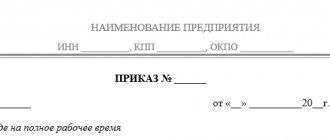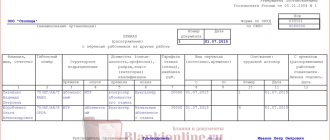In the Russian Federation, remote working mode is recommended due to the threat of the spread of the respiratory infection COVID-19. Employers are transferring employees to remote work due to the coronavirus, which must be properly documented - an order for transfer to remote work and an additional agreement to the employment contract have been drawn up.
According to the authorities, this approach will limit interaction between people and, as a result, prevent infection.
Procedure and reasons for transfer
The rules governing the remote performance of official duties in the Russian Federation are provided for in Chapter 49.1 of the Labor Code of the Russian Federation. But it is more often used when they are just formalizing an employment relationship. And how to apply it if it is necessary to reconsider the terms of the employment contract and conclude an additional agreement on the transition to remote work, few people have any idea. There won’t be any difficulties if you understand some of the nuances.
Transfer is possible in two cases:
- at the initiative of the employee;
- at the employer's suggestion.
An employee has the right to submit a written application, drawn up in free form, addressed to the manager with a request for permission to work remotely. If the employer agrees, he draws up an additional agreement to transfer the employee to remote work to the employment contract, issues an order to transfer the employee to remote work, and the person begins to work without coming to the organization’s premises.
The employer can also initiate a change in the terms of the employment agreement if, for example, there are relevant recommendations from government agencies to transfer employees to a remote format, as happened in the case of the coronavirus quarantine. The Labor Code of the Russian Federation states that the employer must notify about a change in working conditions at least 2 months in advance.
IMPORTANT!
Transfer is possible only with mutual consent of the parties. If employees are against it, they cannot be forced to work from home. We will have to keep all the terms of the contracts unchanged. On the other hand, while regulatory authorities recommend transferring staff to remote work, and if the employer is not able to do this, officials will not stop the production process.
When the parties have agreed, the employer issues an order to transfer all (or some) employees to remote work. This should not affect the level of pay unless the job function has changed.
Read more: How to draw up a notice of change in the terms of an employment contract
Do I need an additional agreement to the employment contract when transferring to remote work?
The transition of personnel to remote work must be documented:
- The employee must confirm his readiness to perform work functions at home by providing his employer with an appropriate statement or written consent - a sample application for remote work during the coronavirus period.
- Having received such confirmation from the employee, the head of the organization must issue an appropriate order approving the declared transition - a sample order for transfer to remote mode due to coronavirus.
- After this, the director of the company (institution) enters into an additional agreement with the employee, which is drawn up as an integral annex to the existing employment contract. It clearly regulates the remote employment of an individual with a given employer.
The head of an enterprise should not send his employee to work remotely without an appropriate order and an additional written agreement to an existing employment contract.
The need to conclude an additional agreement when switching to remote work is stipulated by the provisions of Article 72 of the Labor Code of the Russian Federation. We are talking about adjusting previously agreed working conditions, enshrined in the current employment contract. In this case, the individual’s workplace changes – now it is located outside the permanent location (address) of his employer.
The new labor regime of a citizen who continues to work within a specific organization is regulated by the content of an additional written agreement, drawn up without renewing the basic employment contract.
There is no need to terminate the current employment contract and enter into new ones; it is necessary to specify new conditions in the additional agreement.
The temporary nature of remote work - for the period of the likely spread of coronavirus - must also be stipulated in this additional agreement. In this case, the rules and requirements of Chapter 49.1 of the Labor Code must be observed, that is, Articles 312.1-312.5 of the Labor Code, which regulate remote employment.
Contents of the additional agreement for remote operation due to coronavirus
The form of an additional written agreement regulating the remote (home-based) employment of an enterprise employee during the coronavirus outbreak is free. When drawing up this document, however, one must be guided by the recommendations of the Ministry of Labor of the Russian Federation, as well as the above-mentioned norms of Chapter 49.1 of the Labor Code.
The fact of a change in the working regime and new working conditions valid during the threat of coronavirus are documented by the parties in accordance with the requirements of Articles 72 and 72.2 of Chapter 12 of the Labor Code.
A bilateral agreement on the transition from a stationary place of work to a remote one includes the following information:
- Details of the basic employment contract, directly supplemented by new conditions. You must indicate the date it was compiled, as well as the registration number.
- Date of registration, serial number of the agreement itself. It is emphasized that it is an annex to the basic employment contract mentioned above.
- Locality (city).
- General information about the employer company (name, legal address, actual location, registration codes, other details).
- Data of the head of the company (institution) - the representative of the employer, who acts as a signatory of the document. You must indicate his full name and the title of his position.
- Data of an employee who is switching to remote mode due to coronavirus and, accordingly, is a signatory of this document. His full name, position, and passport information are indicated.
- Details of the order (order) of the employer that officially approved the transfer of an individual to remote work due to coronavirus.
- Statement of the temporary transition of the signatory’s employee to remote working mode for the period of the coronavirus threat. In this case, the residence (location) address of the individual, which is his new workplace, is indicated.
- The validity period of this agreement (start date, end date), that is, the total period of the employee’s home-based employment. It may correspond to the expected duration of the coronavirus threat. It should be indicated that after a specific time, this citizen returns to his original (stationary) place of work.
- Home work schedule – start and end times of the working day, breaks, and weekends provided.
- Remote work security rules.
- Communications between employer and employee (information interaction, communication, document flow). For example, e-mail, telephone, online messengers.
- Technical equipment of a remote workplace (conditions for providing a remote employee with a personal computer, Internet connection, communications, and other necessary devices).
- Transferring work assignments to the employee, checking and monitoring their proper implementation, providing the employer with finished results. The prescribed regulations (procedure) are described.
- Salary. It is necessary to clearly indicate the remuneration system applied during the validity of this agreement during the period of the threat of the COVID-19 virus (coronavirus), as well as the procedure for making payments. The salary amounts, rules for calculating (accruing) them, and payment terms are indicated. An important condition is that the hired employee should not suffer due to the transition to remote employment.
- Deciphered signatures of the parties - the director of the company and the employee.
The documents are drawn up in two equivalent (identical) copies. One is for the employer. The second is for the citizen himself, who is forced to work remotely.
.
Useful video
Watch the video to see how to set up remote work during the coronavirus (COVID-19) period:
What to write in an additional agreement
The first thing you need to understand is that an additional agreement on remote work does not change the employee’s scope of responsibilities, it clarifies the place where they are performed. If previously the workplace was located in the employer’s office, then after the transfer it is located outside the employer’s location, for example, the person’s home address, from where he will actually start working.
In addition to the workplace, the parties have the right to stipulate:
- new work and rest regime;
- methods of interaction and control;
- duration of remote employment;
- the procedure for paying wages if they were previously paid out from the cash register;
- other details.
Sample additional agreement on transfer to remote work
IMPORTANT!
Remote workers are subject to all the guarantees that exist for other workers. Depriving remote workers of annual paid leave, time off for work on days off, benefits or other rights is an administrative offense.
Read more: What you need to know about remote work
Who is being transferred to remote work?
Transfer to remote work is regulated by Chapter 49.1 of the Labor Code of the Russian Federation. But it is used for the first time when registering for remote work. If it is necessary to revise the current conditions, other norms of labor legislation are also subject to application. The employee is transferred to:
- his initiative;
- initiative of the employer.
In the first case, the employee sends a written request in a free format to the manager. The document sets out a request to work remotely. If the employer has the consent, the latter forms an additional agreement on transfer to remote work, approves the administrative document, and the employee performs duties outside the office location.
An employee is transferred to remote access only if there is agreement between the parties. The document defines the place of work of the remote worker (it is one of the main conditions in the employment contract). If a person objects, it is prohibited to force him to work remotely.
If there is consent, the organization’s management approves a local act on the transfer of personnel (in full or in part). The change does not affect wages.
The decisive factors for concluding an additional agreement to the contract on remote work are:
- the presence of consent of both parties;
- the opportunity to transfer to a remote format those who already have an employment relationship with the enterprise.
Useful: how to properly arrange a remote transfer.
The second case is related to the initiative of the employer. Labor Code of the Russian Federation in Art. 312.9 provides the employer with the functions of temporarily transferring an employee if:
- disaster (natural or technological);
- accident at the enterprise;
- Emergency in the form of fire, flooding, earthquake, epidemic;
- any case of exceptional nature that threatens the life of the population;
- decision of the authority.
In the event of these events, the employee’s consent is not required.
The employer acts as follows:
- provides all required equipment or compensates the employee’s own expenses for performing duties;
- agrees with the trade union on the order for transfer to remote work (the document indicates the reasons for the changes, the list of those transferred, the period of remote work, the algorithm for providing technical and other means, the algorithm for organizing time);
- if required, trains;
- introduces the local act to the employees mentioned in it.
In case of temporary relocation for the above reasons, it is not necessary to change the employment agreement. When the period of remote interaction ends, the employee should be provided with the same conditions.
If the specifics of the activity at the place of work do not allow performing functions remotely at the initiative of the employer or the latter is not able to provide the required conditions, the situation is classified as downtime, which does not depend on the parties and is subject to payment in accordance with Part 2 of Art. 157 Labor Code of the Russian Federation.
Why is an additional agreement necessary?
Remote labor relations carry certain risks for both the employee and the employer, and an additional agreement on remote work, as an official document regulating labor relations for a certain time, will allow them to be minimized.
If the document clearly states the employee’s work schedule, methods of monitoring the performance of his job duties, and details of the exchange of information, the manager will still have the levers to control his subordinate. At the same time, this gives employees guarantees that they will receive the agreed remuneration for their work, their work experience will be documented, and, if necessary, they will receive social benefits and benefits.









